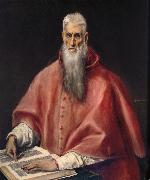
|
Alessandro Botticelli
|
|||
|
|
|||
| Florence ca.1445-1510 Italian painter and draughtsman. In his lifetime he was one of the most esteemed painters in Italy, enjoying the patronage of the leading families of Florence, in particular the Medici and their banking clients. He was summoned to take part in the decoration of the Sistine Chapel in Rome, was highly commended by diplomatic agents to Ludovico Sforza in Milan and Isabella d'Este in Mantua and also received enthusiastic praise from the famous mathematician Luca Pacioli and the humanist poet Ugolino Verino. By the time of his death, however, Botticelli's reputation was already waning. He was overshadowed first by the advent of what Vasari called the maniera devota, a new style by Perugino, Francesco Francia and the young Raphael, whose new and humanly affective sentiment, infused atmospheric effects and sweet colourism took Italy by storm; | |||
|
|
|||
|
St.Jerome new3/Alessandro Botticelli-656572.jpg Painting ID:: 29216 |
mk65 Tempera and oil on canvas tranferred from panel 17 1/2x10" | ||
|
|
|||
|
El Greco
|
|||
|
|
|||
| Greek-born Spanish Mannerist Painter, 1541-1614 Considered a representative of late Renaissance Spanish art, El Greco was actually born in Greece, on the island of Crete. After studying in Venice under Titian, El Greco settled in Toledo, Spain in 1577. At the time he was wildly popular, his emotionally religious paintings being just the ticket for the hometown of the Spanish Inquisition. After his death his work was largely ignored until the beginning of the 20th century; now he considered one of the inspired geniuses of Western art. His distinctive style features bold shapes and colors, with elongated and slightly distorted figures. In Toledo El Greco was in constant demand and liked living large: he maintained a private orchestra to accompany his meals. | |||
|
|
|||
|
St.Jerome new4/El Greco-482489.jpg Painting ID:: 31749 |
mk76 Painted between c.1590 and 1600 Oil on canvas 43 1/2x37 1/2in | ||
|
|
|||
|
El Greco
|
|||
|
|
|||
| Greek-born Spanish Mannerist Painter, 1541-1614 Considered a representative of late Renaissance Spanish art, El Greco was actually born in Greece, on the island of Crete. After studying in Venice under Titian, El Greco settled in Toledo, Spain in 1577. At the time he was wildly popular, his emotionally religious paintings being just the ticket for the hometown of the Spanish Inquisition. After his death his work was largely ignored until the beginning of the 20th century; now he considered one of the inspired geniuses of Western art. His distinctive style features bold shapes and colors, with elongated and slightly distorted figures. In Toledo El Greco was in constant demand and liked living large: he maintained a private orchestra to accompany his meals. | |||
|
|
|||
|
St.Jerome new11/El Greco-693783.jpg Painting ID:: 38158 |
mk29 1590-1600 110.5x95.3cm | ||
|
|
|||
|
El Greco
|
|||
|
|
|||
| Greek-born Spanish Mannerist Painter, 1541-1614 Considered a representative of late Renaissance Spanish art, El Greco was actually born in Greece, on the island of Crete. After studying in Venice under Titian, El Greco settled in Toledo, Spain in 1577. At the time he was wildly popular, his emotionally religious paintings being just the ticket for the hometown of the Spanish Inquisition. After his death his work was largely ignored until the beginning of the 20th century; now he considered one of the inspired geniuses of Western art. His distinctive style features bold shapes and colors, with elongated and slightly distorted figures. In Toledo El Greco was in constant demand and liked living large: he maintained a private orchestra to accompany his meals. | |||
|
|
|||
|
St.Jerome new11/El Greco-829384.jpg Painting ID:: 38192 |
mk29 1590-1600 Oil on canvas 110.5x95.3cm | ||
|
|
|||
|
Also Buy::. For Following Paintings / Artists / Products, Please Use Our Search Online: |











